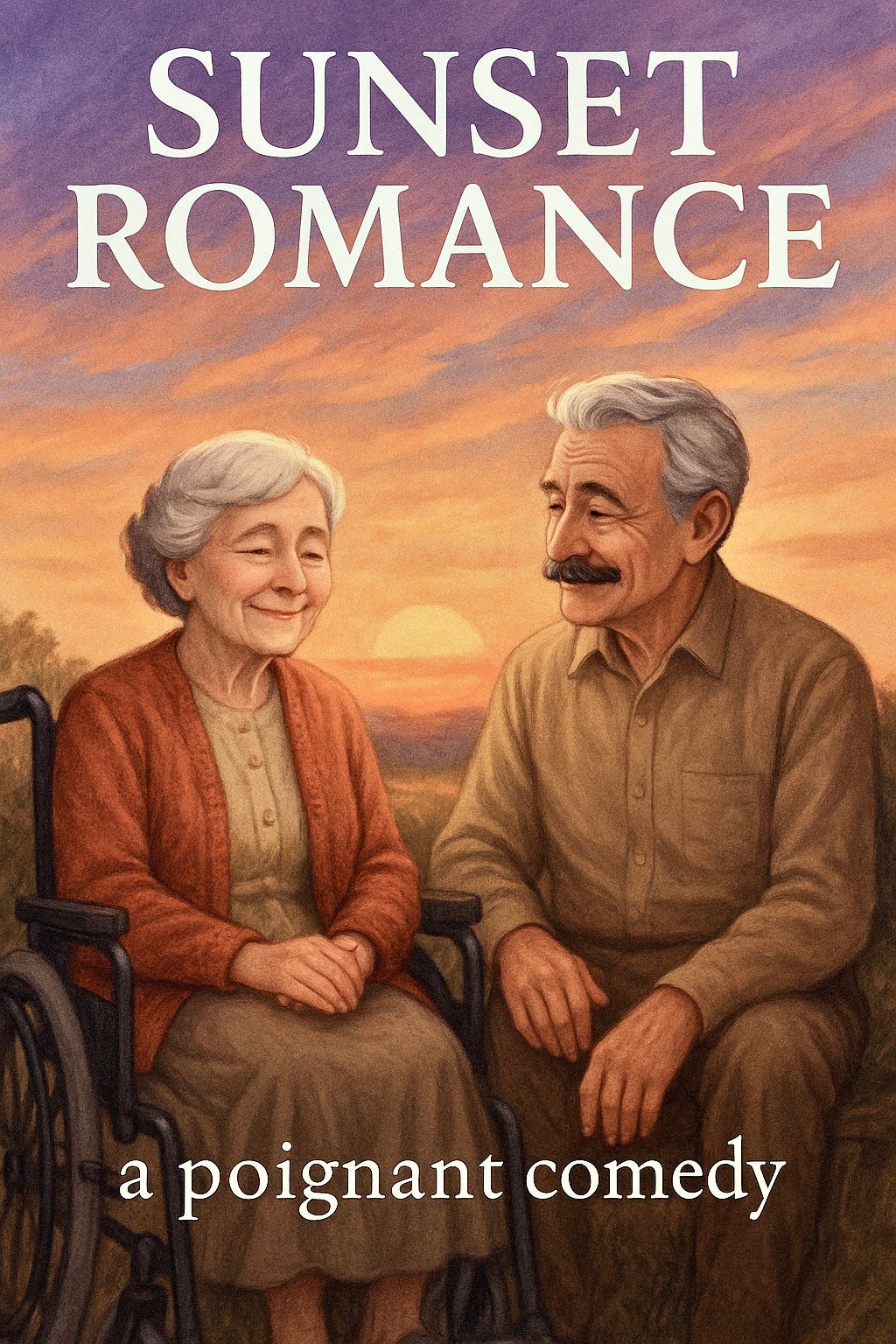5.
John Mulberry picks up his phone to feign busyness when Elsa Peabody appears at the reception counter, envelope in hand.
Carol-Ann regards her with an indulgent smile.
“Mr. Mulberry said he would deliver this for me,” Elsa says with a frail voice, passing to Carol-Ann the letter to Miles Stewart she wrote.
“Of course, Mrs. Peabody. I’ll give it to him when he’s off the phone. Thank you,” she adds, meaning, goodbye.
Elsa wheels around and sets so off in the direction of her room. Halfway down the corridor she stalls, looking both ways to see if anyone’s watching her. No one. Ernesto, she’d noted, was outside on a smoking break. Elsa reaches for the public phone with her left hand, lifts it from the cradle, drops quarters into the slot and listens to it ring on the other end.
“Hello?” says an officious female voice.
Elsa’s mouth is dry. She takes a deep breath.
“Hello?” the voice says again.
“May I please speak with Miles Stewart?”
“Hold on.”
Elsa feels the beating of her heart as it picks up speed, part fear that Mr. Mulberry will suddenly appear and part joyful anticipation of hearing Miles Stewart’s voice again. Seconds seem like minutes. And then a gentle voice fills Elsa’s ear. “Hello?”
“Miles?”
“Yes!”
“Miles, is that you?”
“Elsa?”
“Yes!” Elsa blurts loudly before catching herself. She glances down the corridor and lowers her voice.
“I’m so happy to hear from you, Elsa. You must have received my message.”
“No. What message?”
“I left three.”
“They didn’t tell me,” says Elsa. “How are your tests?”
“What tests?”
“Medical tests.”
“I’m sorry, Elsa, I don’t know what you mean.”
“They told me you left Sunset for medical tests.”
“No. I’m not due for tests. Not this week.” Miles laughs. “They moved me to their other facility in Goleta.”
“Why?”
“They said they’d made a mistake putting me in Santa Barbara, that I had been booked into this place. They said there’s no room where you are.”
“Nonsense!”
“That’s what they told me.”
“Would you return here if they let you?”
“Of course, Elsa. I’ve already requested that. They said I’m on a waiting list.” Miles pauses, chuckling. “As if I have time to wait. Elsa, the time I spent talking with you yesterday was one of the best afternoons I’ve had in a very long time.”
“Me too Miles!”
“Really?”
Out the corner of her eye, Elsa catches motion. She turns. Mr. Mulberry. “Miles, I have to go.”
John Mulberry slows his pace as he passes Elsa.
“Is your room phone in need of repair?” asks Mulberry.
“Mr. Mulberry,” says Elsa. “As a professed advocate of privacy, don’t you think you should respect mine?”
Mulberry tries to sneak a peek at the note in Elsa’s hand, but she sees the quick movement of his eyes and slides it beneath her derriere.
“Good day,” she says, wheeling off.
Sara Barton beams as Elsa makes her way toward her. “Well?”
“I spoke with him!” gushes Elsa, elated. “He said he’s been thinking about me just as I have been thinking about him.” Then she turns fierce. “They lied to me. He hasn’t gone for medical tests. They told him he was here by mistake and there’s no room for him.”
“Uh-huh,” says Sara, eyes sparkly. “My grandson will be very interested in this development.” She plucks a cell phone from her purse. “I think I’ll call him right now.”
Sara connects to her grandson’s cell phone and leaves a detailed message.
6.
If there is anything Daniel Barton, Esquire, relishes in life, it is a David and Goliath struggle. The fortune he amassed as a founding partner of Boggles, Biggs, and Barton was just a tool for the pro bono work he so enjoyed as one of the City of Angels top litigators.
Just a brief letter from Barton usually sent shivers up the spines of most studio executives in Hollywood’s movie industry.
Barton found the entertainment business, well, entertaining, in ways movie stars never quite imagined. He enjoyed a ringside seat at most Hollywood divorce actions, paternity suits, defamation against tabloids, and the endless comedy and drama ensuing from such.
But his true professional love was standing up against high authority to obtain justice for someone unable to defend him- or herself. This he did purely for the satisfaction of giving something back to a community that had showered him with abundance.
His grandmother, Sara, had paid for most of his college and law school tuition. There wasn’t anything he wouldn’t do for her.
So when Daniel Barton finishes a courtroom hearing and listens to his personal cell phone messages, he takes a special interest in the one from Grandma Sara. He’d already assigned a paralegal and an investigator to look into nursing home law, and Miles Stewart, respectively, so he is well prepared, as always, for his second phone call to John Mulberry of Sunset Assisted Living.




